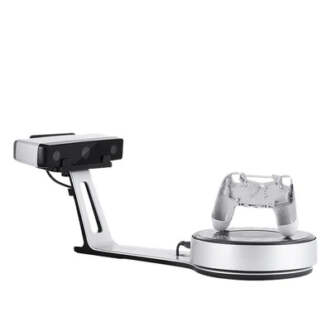
Scaleup Solution: The World of Business and Management Consultants
Some Understanding about Business and Management Consultants The business and management consultants are inventive trouble solvers with a sharp look at business optimization. They hold competence in various fields, which is a set of skills: Specialized
Business Knowledge: Consultants have a deep understanding of how these functional areas contribute to a business as a whole and how they are interdependent with each other.
Analytical Proficiency: They can recognize trends, find problems, and put forward data-centric solutions with the help of data analytics. Problem-Solving Abilities: The consultants are good at the diagnosis of the most complicated business challenges, generating the most original solutions, and drawing up the blueprints for feasible execution.
Communication Literacy: Should they wish to, they can effectively elucidate even the most intricate of matters to the highest corporate personnel and the least among the frontline workers. Liaison Construction: It is essential that communication is established on a personal level and trust is built between consultant and client for consultants to more comprehensively understand their desires and concerns. Business consultants are distinctively different from management consultants. To give an example, business consultants generally work on optimizing specific tasks at companies, such as streamlining supply chains or the introduction of new marketing components. In contrast, management consultants mainly look at bigger issues such as organizational structure, leadership practices, and strategic planning for the long term. What Is Their Main Role? A business and management consultant daily working modus is significantly varied by the closeness of the project and the client’s desires. Here’s a peek at the functional aspect of their work:

Client Engagement: The process begins by consultants grasping the business objectives and technological roadblocks of the client. This part of the work is an in-depth conversation, data analytics as well as studying the industry. Problem Identification & Analysis: Having drawn up the original causes, they employ their analytical skills to detect the weaknesses that need to be solved. Solution Development: The consulting firms map comprehensive solutions incorporating factors such as client’s resources, budgets, and risk tolerances.
Implementation Planning & Support: They team up with clients to create a to-the-point pathway for the deployment or the implementation of specified remedies. It may incorporate the employment of switch management strategies to tackle the employee’s pullbacks and as well as to ensure smooth performance. Monitoring & Evaluation: Most of the time, consultants are involved in the follow-up processes of the suggestions that have been integrated to find out the progress of these devices and even their effectiveness. How Does It Feel Like to Work as a Consultant? Both business and management consultants can work in various conditions: Consulting Firms: Big consulting companies such as McKinsey & Company or Bain & Company provide various services across multiple sectors. Boutique Firms: These niche or boutique consulting firms are more specialized and mostly focus on areas such as digital transformation or human resources management.
Seasoned Consultants: Professional consultants who have gained expertise over the years can choose to work on a freelance basis. They can work alongside many types of clients. The Advantages of Partnering with a Consultant Business of any size can take advantage of the skills that consultants bring. Some of the main benefits are: Innovative Point of View: The consultants have a corrective and unbiased viewpoint, helping the companies find the blind spots and areas for improvement. Professional Knowledge: The consultant can delve into a specific issue in detail, which may go beyond the expertise of the employees at the company.
Implementation Aid: Consultants are the mentor to the companies to the process of change management for the company and accompany the company throughout smooth completion.
Best Practices: Business consultants introduce efficient techniques to the business which enable the company to stay in front of its competitors. Skills to Learn If You Are Interested in Management Consulting and Business If you are deciding to have a career in business and manage consultancy, here are some of the important skills you have to develop a good comprehensive prerequisite – A bachelor’s degree in management, economics, or a related area might be the best place to start.
Analytical Abilities: Be able to interact with data, identify patterns, and understand how data represents a situation or concept. Problem-Solving Skills: The way in which a person can break apart the big issue and inventions out of the box is one of the best ways to progress.
Communication Skills: Both written and verbal are the very essential ways to convey your ideas to clients. Leadership and Interpersonal Skills: Cloud consultants need to use very effective client building and influencing skills to get their clients to involve in decision-making processes. The Future of Business and Management Consulting
Globalization of the business world and digitalization are the primary drivers of business and management consultants’ growth. These are very complex specialization due to the fact that businesses are converging into one giant hypermarket that is serving global demand that is currently de-regulated through which IT is connecting businesses via virtual corporate circulatory five principles of non-physical economies are discussed in this chapter including the idea that financial markets are real instead of virtual.




















